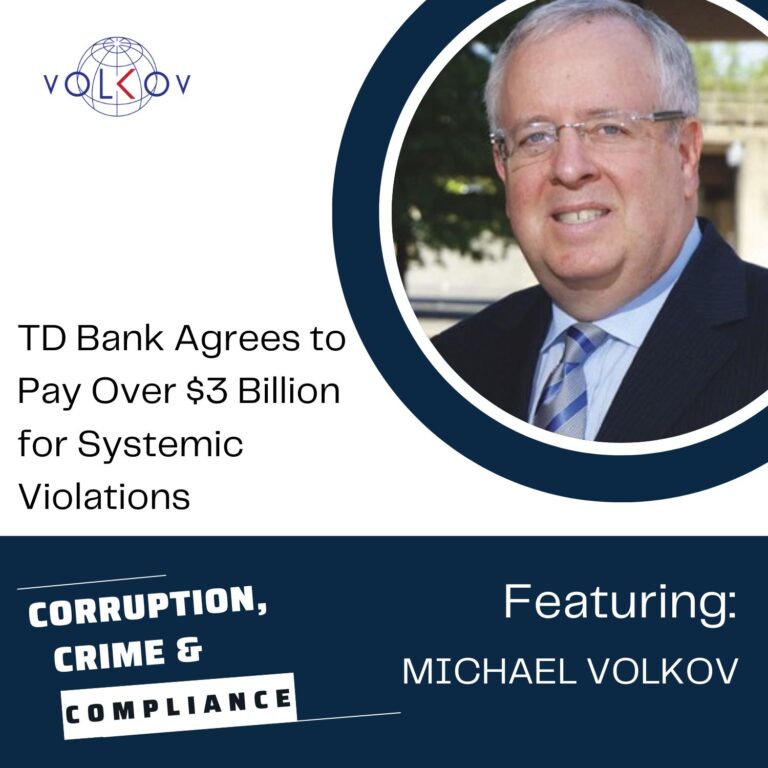How does a respected financial institution turn into a criminal operation? In this episode of Corruption, Crime, and Compliance, host Michael Volkov dives into the record-breaking $3 billion settlement between TD Bank and the Department of Justice over pervasive violations of the Bank Secrecy Act (BSA) and Anti-Money Laundering (AML) laws. Highlighting TD Bank’s systemic failures, Michael explores how its compliance and oversight lapses led to criminal conduct within its operations, making it a case study on the dangers of prioritizing growth over legal compliance. From failed AML programs to enabling money laundering on a massive scale, this episode sheds light on the regulatory crackdown TD Bank now faces.
Hear him discuss:
- TD Bank’s $3 billion penalty sets a new high for banking compliance cases. In yet another reminder of the scope of Justice Department enforcement powers and an important demonstration of the risks of non-compliance, the Justice Department and relevant banking agencies announced a $3 billion settlement with TD Bank companies to resolve systemic and pervasive Bank Secrecy Act (“BSA”) and money laundering violations.
- TD Bank’s internal culture sidelined AML compliance, leading to massive oversights, including unmonitored transactions worth $18.3 trillion from 2018 to 2024.
- TD Bank enforced a “flat-cost paradigm,” restricting the compliance budget, which prevented updates and adaptations needed to meet new risk levels.
- TDBUSH pleaded guilty to causing TDBNA to fail to maintain an AML program that complies with the BSA and to file accurate Currency Transaction Reports (“CTRs”).
- Despite multiple warnings from internal audits and third-party consultants, the bank maintained its flawed AML protocols without significant action.
- TD Bank earned the ignominious record of being the largest bank in U.S. history to plead guilty to Bank Secrecy Act program failures and the first US bank to plead guilty to conspiracy to commit money laundering.
- With this settlement, TD Bank joins a list of high-profile compliance failures alongside companies like Wells Fargo and Wirecard, furthering the call for financial institutions to prioritize ethical compliance in their growth models.
Resources:






